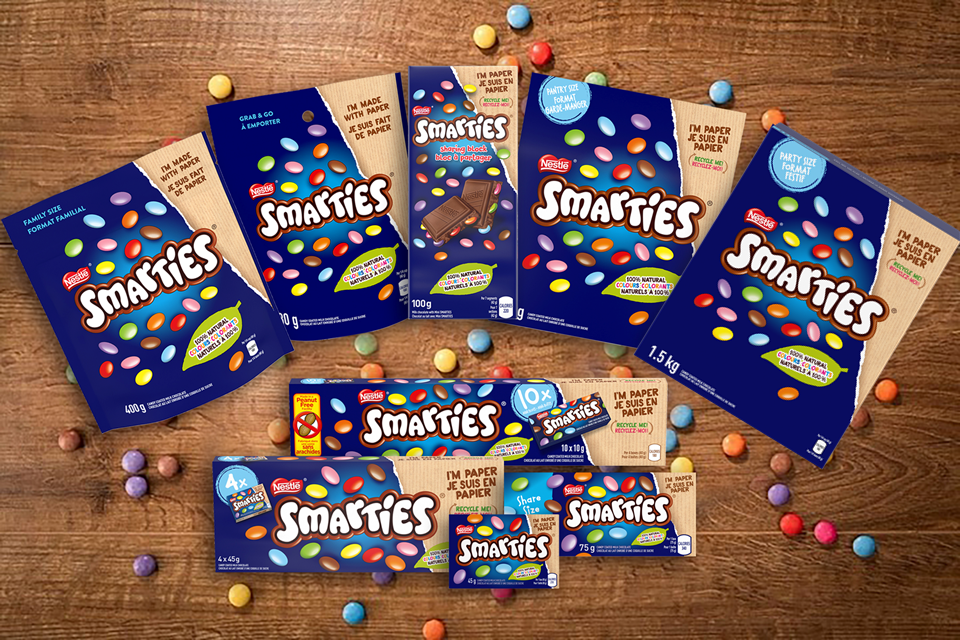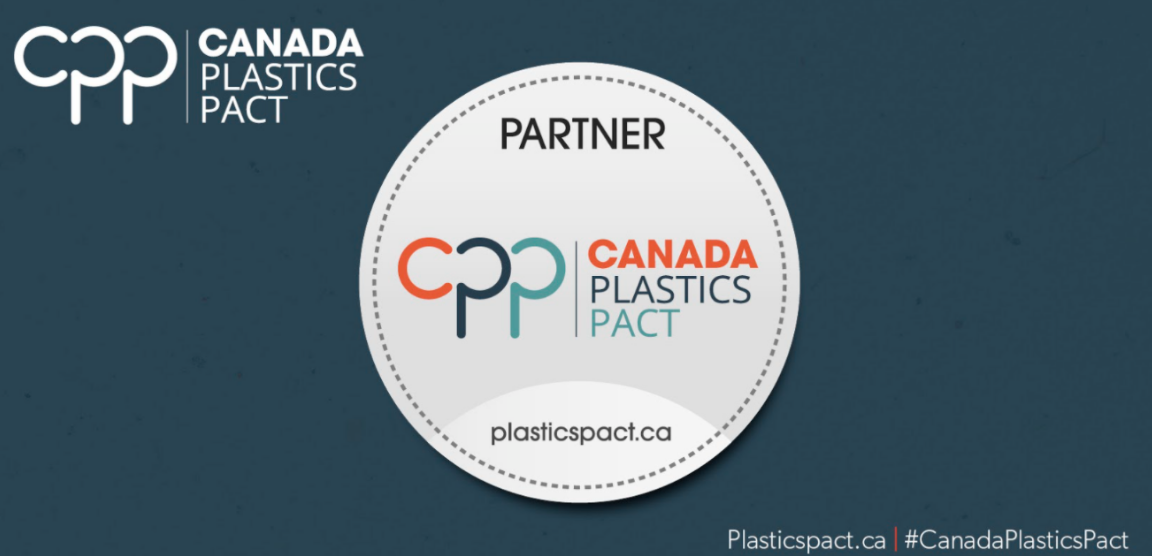Sustainable Packaging at Nestlé Canada
At Nestlé, tackling plastic pollution is an urgent priority for us. We are working hard to ensure that none of our product packaging, including plastics, ends up in landfill or as litter, including in our oceans, lakes and waterways.
To achieve this, we are pursuing our commitment for fully recyclable/reusable packaging, progressing towards above 95% Design for Recycling by 2025, with the aim of getting to 100%.
We’ve made a number of global commitments to get there, including the elimination of non-recyclable plastics.
Examples of packaging improvements in Canada include:
- Smarties packaging is now made with responsibly sourced paper, diverting up to 26 tonnes of plastic from Canadian landfills each year.
- Nestlé Real Dairy Ice Cream is one of the first recyclable ice cream containers in Canada.
- Nestlé Good Start Infant Formula is now available in recyclable cans.
- All BOOST® ready-to-drink 237ml meal replacement drinks (High Protein, Original, Plus Calories and Diabetic) have moved to recyclable, reclosable Tetra® Prisma packaging.
However, to tackle the plastic waste crisis we know that our commitments to make our packaging recyclable or reusable alone are not enough.
We are determined to reduce our use of single-use plastics, by introducing reusable packaging, new delivery systems and innovative business models everywhere we operate and sell our products. Building on our commitment, we will reduce the use of virgin plastics by one third by 2025. We are on track to reduce the use of virgin plastic by one third by 2025, having already reduced 8% globally by 2021.
In early 2020, we announced an investment of up to CHF 2 billion to lead the shift from virgin plastics to food-grade recycled plastics, and to accelerate the development of innovative packaging solutions.
Collaboration and collective action are vital for transforming how packaging is managed at end of life, particularly if we are to advance the circular economy. Recognizing this, we opened the Institute of Packaging Sciences in 2019 to enable us to accelerate our efforts to bring functional, safe and environmentally friendly packaging solutions to the market and to address the global challenge of plastic packaging waste.
In addition to the work of the Institute, we are working with value chain partners, industry associations and the civil society to explore different packaging concepts to shape a waste-free future. Such system-wide change takes time, but we are committed to creating a world without waste. Our company will also continue to play an active role in the development of well-functioning collection, sorting and recycling schemes across the countries where we operate.
Improving consumer information is also vital, and we’re committed to helping improve it by labeling our product packaging with recycling information – to help ensure it is disposed of in the right way.
Plastic packaging plays an important role in safely delivering high-quality food and drinks to consumers, and in reducing food loss and waste. We need to consider alternatives carefully before making changes.
We are determined to look at every option to solve these complex challenges and embrace multiple solutions to reduce our environmental footprint.
You may also be interested in
Canada Plastics Pact
On January 27, 2021, Nestlé Canada joined the Canada Plastics Pact (CPP), a collaborative, solutions-driven initiative that brings together industry, government and social organizations from across Canada’s plastics value chain. The goal of the CPP is to drive significant system-wide change towards a circular economy by rethinking the way that we design, use and reuse plastics by 2025.
As a founding partner of the CPP, Nestlé Canada has agreed to collectively make efforts achieving four ambitious goals by 2025:
- Define a list of plastic packaging that is to be designated as problematic or unnecessary and take measures to eliminate them
- Support efforts towards 100% of plastic packaging being designed to be reusable, recyclable or compostable
- Undertake actions to ensure that at least 50% of plastic packaging is effectively recycled or composted
- Ensure an average of at least 30% recycled content across all plastic packaging (by weight)
Canada’s Plastics Pact is the latest country to join the Ellen MacArthur Foundation’s Plastics Pact network, a globally aligned response to plastic waste and pollution. In line with the Ellen MacArthur Foundation’s vision of a circular economy for plastic, the CPP facilitates innovation and knowledge sharing, and drives collaborative action and solutions tailored to Canada’s unique needs and challenges.
To learn more about how we’re optimizing our operations, how are brands are making a difference and commitment from our employees, check out the CSV Snapshot 2021/2022.


